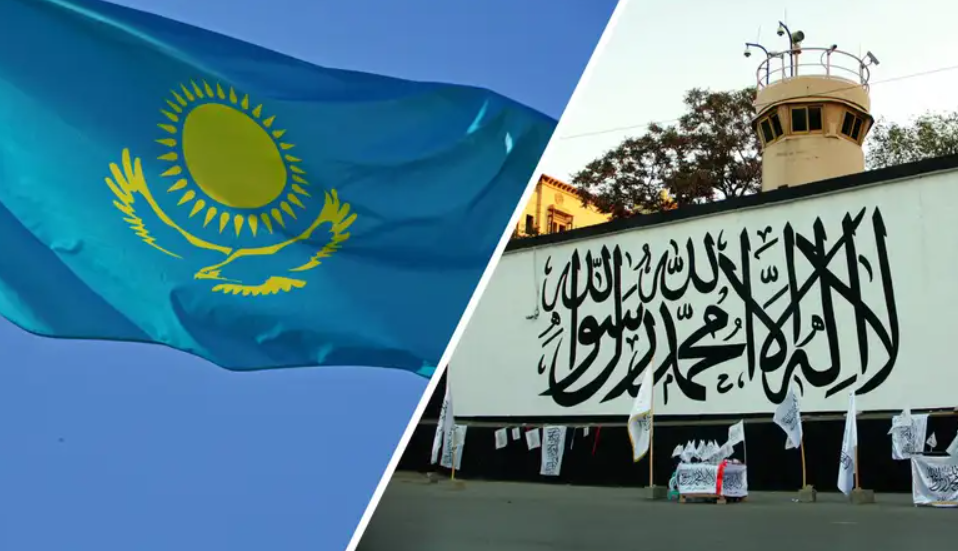Taliban – execution cannot be pardoned …

On December 29, 2023, the Kazakh authorities announced their decision to exclude the Taliban Movement from the list of foreign organizations banned in the country. As expected, this step has found its contradictory reflection in the opinions of various circles.
Spoiler: for many of our domestic “Afghan” experts, this has become a New Year’s and long-awaited gift.
We will not focus on impulsive theses (they can be easily found on the Internet). These assessments have the right to life, but, above all, they are based on political (ideological), personal and religious beliefs and cannot be objective in essence. In these opinions, the authors purposefully confuse “international legal recognition” (as a unilateral act of a State against another state/government) with the norms of the national (internal) legislation of the Republic of Kazakhstan.
Reference: the presence of the Taliban in the list of organizations banned in the Republic of Kazakhstan does not belong to the institution of international legal sanctions, i.e. it is not a unilateral coercive measure applied by the State to a State that has violated international legal norms.
More pragmatic experts believe that it is important for Kazakhstan to strengthen relations with Afghanistan. Such cooperation does not pose a threat to internal security, since the Taliban, having become the ruling regime, is extremely interested in international recognition and seeks to establish truly constructive relations with neighbors and the world community.
Separately, it is necessary to note the reaction of the Russian side. Russian Foreign Ministry spokeswoman Maria Zakharova: “We hope that such a decision by Astana will have a positive impact on the development of dialogue with the Afghan authorities, strengthen mutual trust, including in common efforts to maintain regional security, combat terrorism and drug crime.”
Reports on the preparation of protest actions by Afghan activists at the diplomatic missions of Kazakhstan in the United States and Europe have passed, but have not received relevance. The Afghan Freedom Front, which opposes the Taliban, expressed bewilderment and concern, because supporting the Taliban can lead to negative consequences, and refusing to recognize them as terrorists sends a negative signal to ordinary Afghans. In some Russian media, Kazakhstan’s move is called the actual political rehabilitation of the Taliban brand and jihad in the eyes of public opinion.
In this regard, we will try to clarify the position of the “Open World”.
The Taliban were included in the national list of terrorist structures banned in Kazakhstan according to the decision of the Supreme Court of March 15, 2005. At that time, the Taliban actively opposed the NATO-led international military coalition that launched Operation Enduring Freedom in October 2001 in response to the terrorist attacks of 9/11.
What has happened more than 18 years after this court decision? The territory of Afghanistan has never been freed from the influence of the Taliban, moreover, after the hasty withdrawal of foreign troops, they came back to power, took control of the entire country, and currently, in the view of most states of the world, they are the de facto authorities of Afghanistan. 20 long years of war claimed the lives of 176 thousand people.
Today, more than 20 countries have de facto diplomatic relations with the IEA. Among them are all the neighbors of Afghanistan, Kazakhstan and Kyrgyzstan, China and Russia. Embassies of 16 countries operate in Kabul: Kazakhstan, India, Indonesia, Iran, Italy, Qatar, China, Kyrgyzstan, UAE, Pakistan, Russia, Tajikistan, Turkmenistan, Turkey, Uzbekistan and Japan. It is planned to resume the activities of the Azerbaijani diplomatic mission this year. According to our calculations, since August 2021, the chief Taliban diplomat Muttaki has made 19 foreign visits to 9 countries.
It is also necessary to pay attention to the fact that, according to open sources, the Taliban movement is currently banned in only 3 countries (out of 193 UN members) – Canada, Russia and Tajikistan. Also, the Taliban are not on the list of terrorist organizations of the US State Department, but their Pakistani “colleagues” – Tehrik-e Taliban Pakistan (TTP) are present in it.
Another fact: in the UN, the Taliban Movement has never been classified as terrorist (extremist, radical, etc.). Currently, the definition of “de facto authorities” (DFA) is used in the UN system in relation to the government of the IEA (Taliban), which already says a lot. No UN sanctions have been imposed on the Taliban as an organization. Only personal sanctions against individual Taliban, imposed by UN Security Council Resolution 2255 (2015) of December 21, 2015, apply. This decision provides for three measures (asset freeze, travel ban and arms embargo) against persons included in the relevant list of the 1988 UN Security Council Committee. According to available data, today it includes about 45-50 members of the Taliban government at the central and regional levels.
At the same time, as we said earlier, our country has taken an active position with regard to Afghanistan – trade and economic cooperation and humanitarian assistance are increasing. We are confident that as the most developed state in Central Asia, Kazakhstan should increase its political potential in the region to resolve security issues through diplomatic and economic means, in a civilizational manner in the format of international law and UN regulations.
Considering the above, a reasonable question arises: why should Kazakhstan, positioned as a responsible participant in the international community, making a significant contribution to ensuring international and regional security, and in conditions when Afghanistan is once again acquiring a global and regional “trend”, consider the Taliban a terrorist organization at the legislative level? In our opinion, the decision to exclude the Taliban from the banned list was even somewhat belated.





